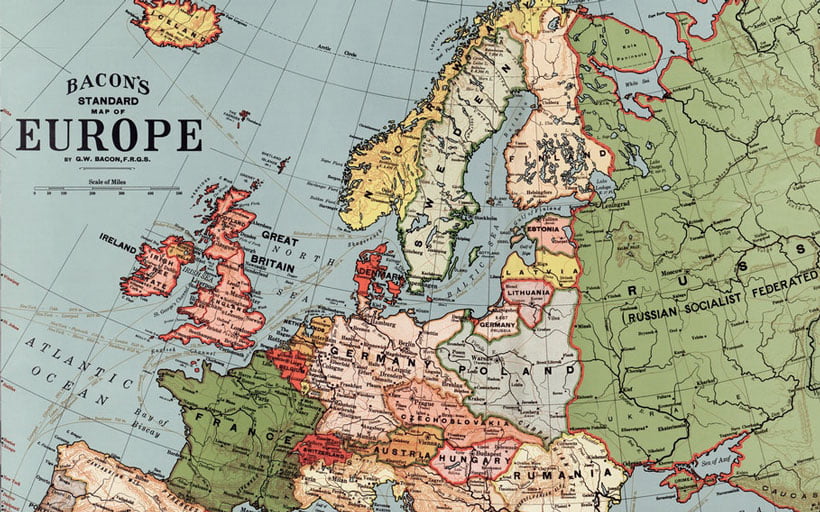Advanced notice: EU changes to VAT rules

Interested in joining the world's leading print on demand platform?
We promise we don’t always write blog posts on tax, but we wanted to give you a heads-up on some important changes relating to the shipment of goods into the EU.
Before we get started, please note that the following details do not constitute tax, legal or other professional advice and must not be used as such. It is the sole responsibility of all Prodigi clients to comply with all legal and sales tax requirements for issuing sales tax or VAT invoices in respect to your transactions.
So now that we’ve got the disclaimer out of the way, let’s talk about tax.
What’s changing?
From the 1st of July 2021, the European Union (EU) is changing the way it manages Value Added Tax (VAT) relating to the shipment of goods into the EU. These changes should (on the whole) be beneficial and will primarily target business-to-consumer (B2C) imports.
The VAT exemption currently in place for goods imported into the EU with a value up to €22 will be removed, meaning these shipments will now be subject to VAT. Low value goods will also require formal customs clearance, although most goods valued up to €150 remain exempt from customs duties.
The EU is also launching an Import One-Stop Shop (IOSS) platform to simplify the declaration and the payment of VAT for B2C imports up to a value of €150.
This optional platform requires you to register with a single EU Member State to manage your sales VAT throughout the EU, removing the need to register for VAT in every country you’re selling goods to.
When selling goods to consumers in the EU, registering with the IOSS means you can collect accurate VAT for the purchase from the consumer at the point of sale, which can then be declared and paid in a periodic VAT return. Shipments containing a valid IOSS number with an intrinsic value of less than €150 (NB this is only a scheme for small value goods) will therefore not be subject to import VAT — since VAT will be taken based on the transaction’s origin — potentially helping products move through customs quicker.
Registering for the IOSS platform isn’t obligatory and you can continue to declare and pay VAT on EU imports as you do today.
To sum up:
- All goods imported into the EU will be subject to VAT regardless of value.
- There are new responsibilities for online marketplaces to ensure VAT is collected on the sale of goods made on their platforms by non-EU businesses to EU consumers.
- Prodigi isn’t an online marketplace according to the scheme's definitions and therefore won’t be liable for individual transactions.
- Businesses can use the Import One-Stop Shop (IOSS) electronic portal from the 1st of July 2021 to comply with their VAT ecommerce obligations on distance sales of imported goods.
- This means you’ll need to charge the correct VAT on EU transactions according to the country you’re registered in for IOSS.
- Customs rules will change, meaning the import VAT applied for goods up to the value of €150 must be the VAT rate of the destination country.
How can I prepare for these changes?
- Identify which areas of your business are impacted by the new EU VAT rules.
- Assess VAT accounting needs for the EU. New systems are likely to be required to identify and apply the appropriate VAT rates in multiple jurisdictions. As you know, this isn’t the same for each country.
- Consider registering for the IOSS platform if you want to use a single registration to pay VAT throughout the EU for B2C shipments up to €150.
- Review and potentially cancel existing foreign EU VAT registrations if you want to replace these with a single IOSS registration.
What happens if I do nothing?
- For most customers, this change will potentially have little impact as you’ll be using our global range of products, which are already produced within the EU. However, if based in the EU and shipping between EU member countries then an OSS number may be required, depending on your VAT setup.
- If imports are shipped without your associated IOSS number then these shipments are likely to be subject to slightly longer processing times.
- Your end customer will also be liable for additional taxes relative to the value of the goods being sent.
Where can I find more information?
There’s lots of useful information available online, but this video gives a detailed overview.
If registering for the scheme from outside the EU then Ireland is viewed as the preferred option for many businesses. The Netherlands is apparently a good alternative — although it should be noted that many member states don’t appear to have the software systems currently set up required to actually implement this programme efficiently.
In a nutshell, the legislation is designed to make trade simpler, while clearly increasing the tax income for member states.
Here at Prodigi, we’re working hard to make sure that transitioning your business to this new regime — and the software and shipping systems required to pass IOSS/OSS information to the relevant authorities — is made as simple as possible.
You can inform us of your IOSS or OSS numbers by updating your company details in your Prodigi account. These details will then be used automatically for all appropriate orders.



